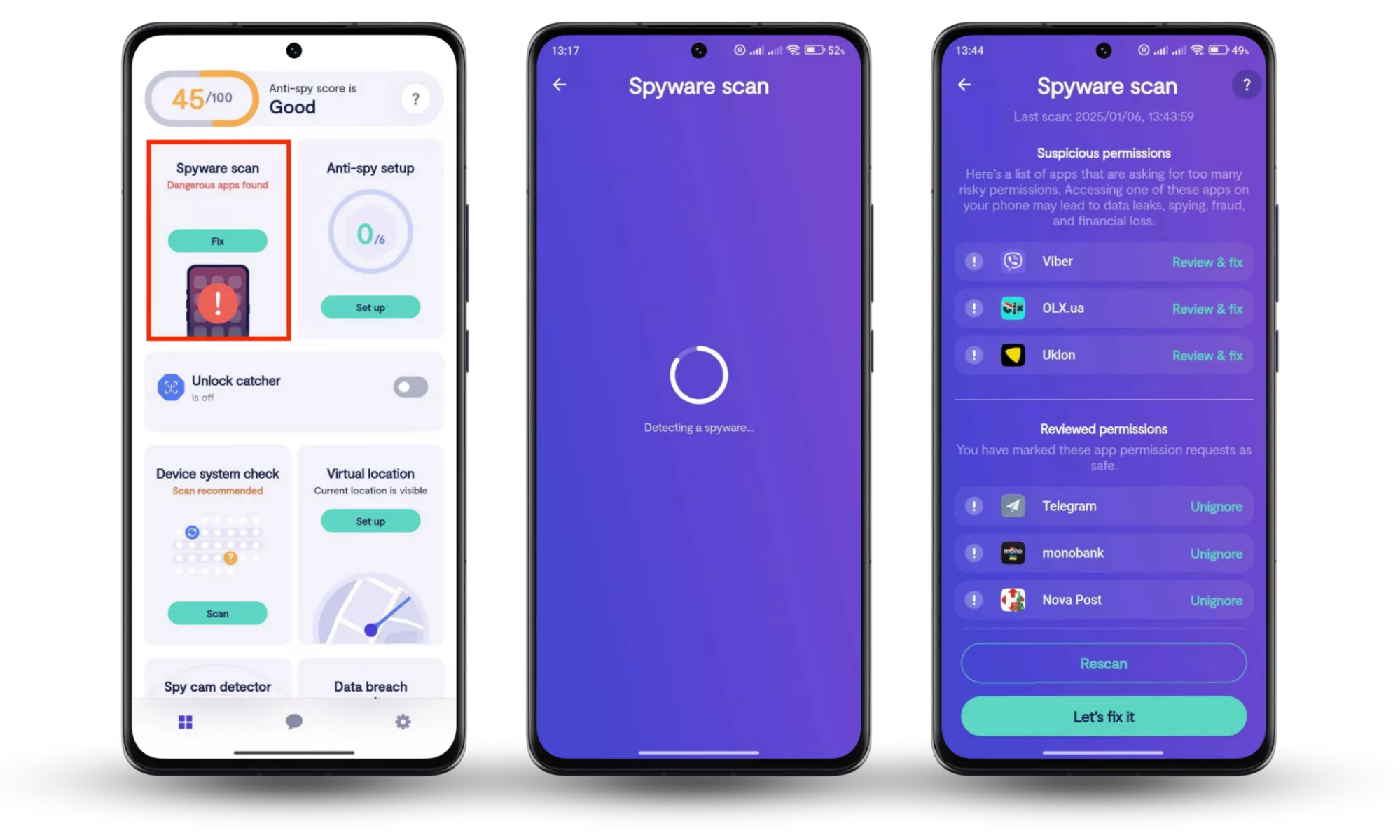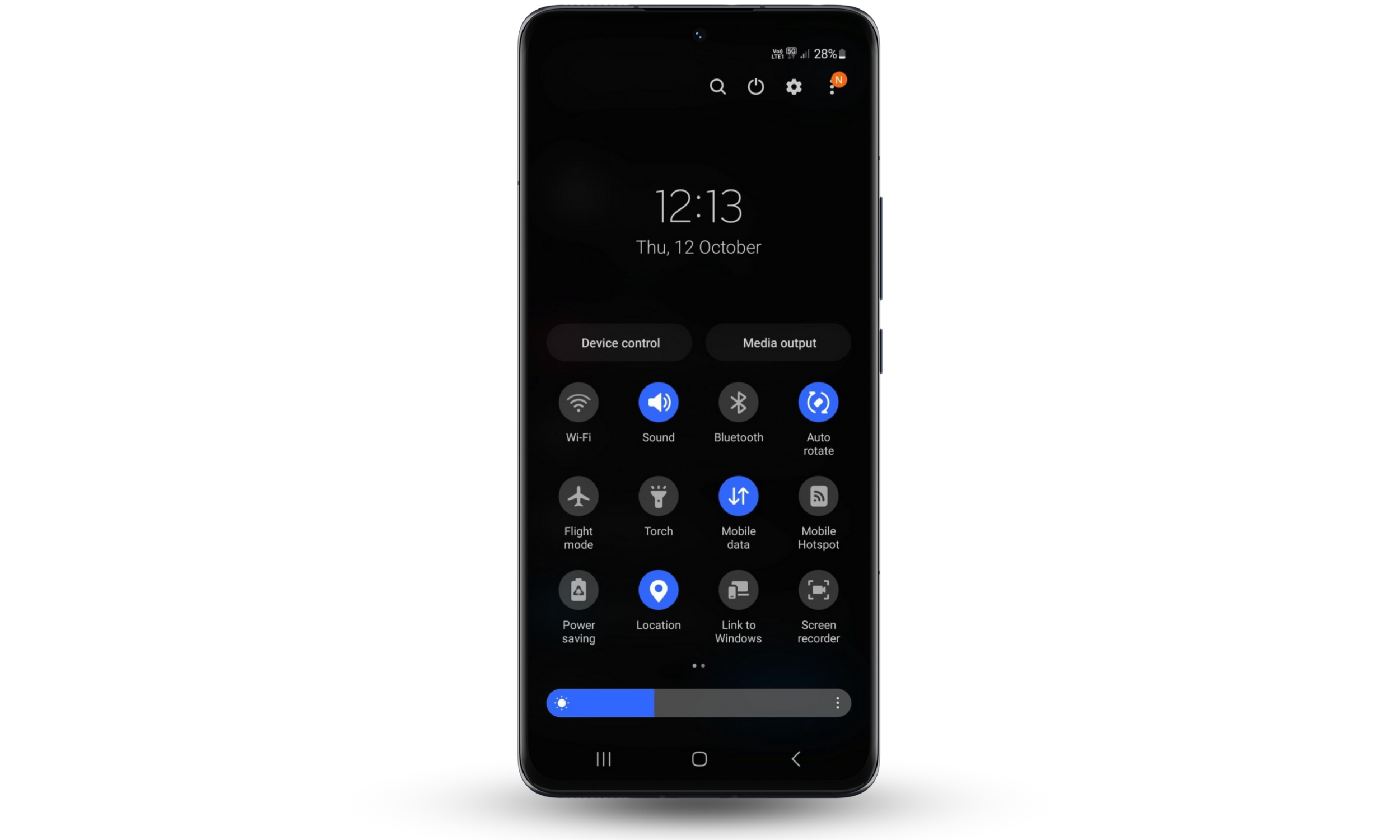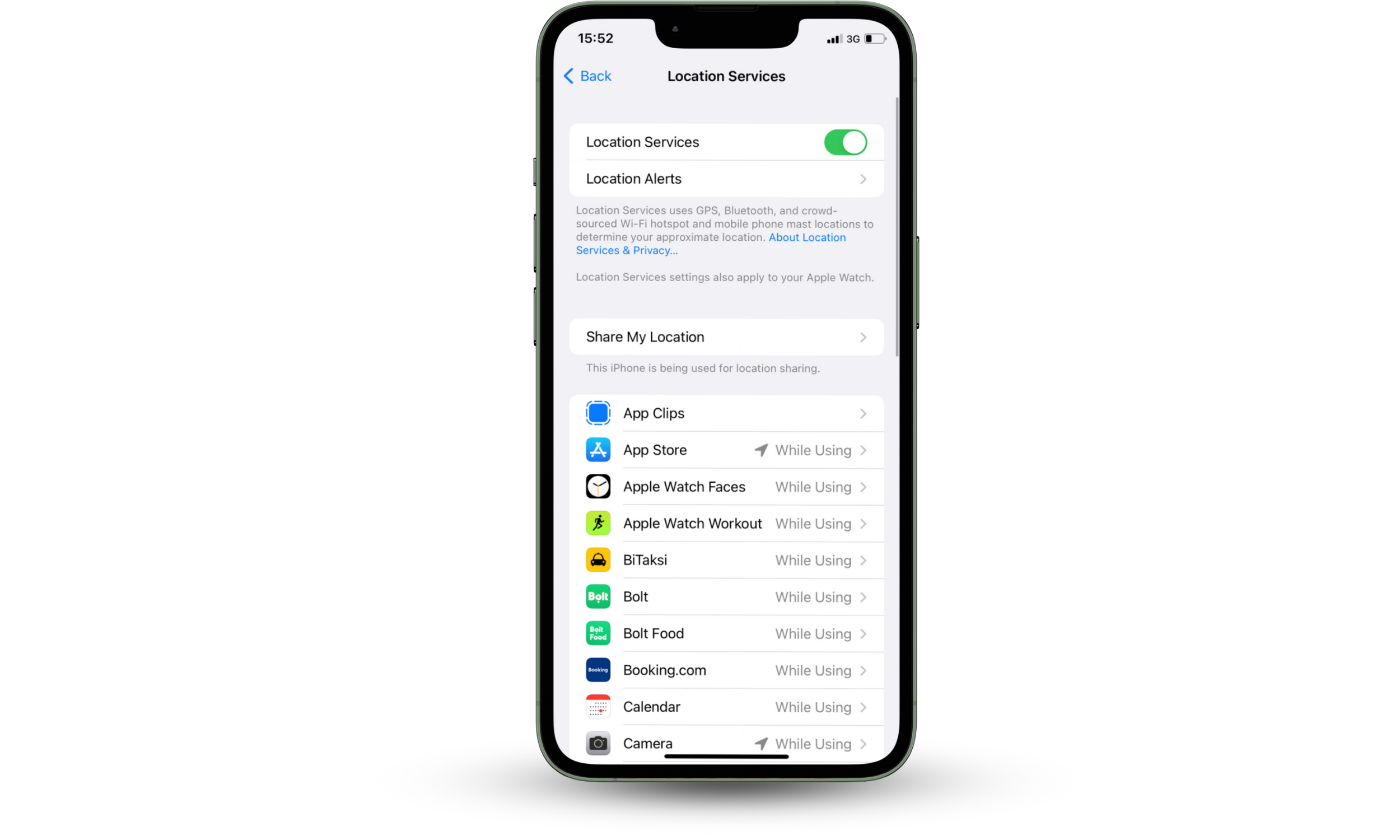Table of contents
- How to tell if the FBI is tracking your phone
- How does the FBI track phones?
- Can the FBI track a phone with a removed SIM card?
- Can the FBI track your phone if the location is off?
- Can the FBI track your phone even if you have a VPN?
- How to stop the FBI from tracking your phone
- 1. Turn off the location service on your phone
- 2. Take the battery out of your phone
- 3. Stop using social media
- 4. Use a VPN on your phone
- 5. Use a trusted messenger
- What phones cannot be tracked?
- Conclusion
How to tell if the FBI is tracking your phone
It’s generally impossible to tell if the FBI is tracking you since you don’t have access to information about the tools or techniques they use. However, since companies like Google collect and sell so much private information (including location data), we can assume we’re all being tracked online.
The two red flags that help you see if your phone is hacked are unusual phone behavior and unknown apps or background processes.
If your phone starts using too much battery, showing unusual data usage, or crashing constantly, it might indicate that you’re being tracked.
Likewise, you might be under surveillance if you scan your phone and find that suspicious apps, background processes, or network connections exist.
To check for malicious apps and spyware on your device, use Clario AntiSpy:
- Open Clario Anti Spy and create an account.
- Underneath Spyware scan, press Fix.
- If Clario Anti Spy detects any spyware, press Review & Fix to remove it.

How does the FBI track phones?
The FBI likely has several tools and methods to track people’s phones. Some known methods include:
- Obtaining a warrant to bug a phone or access cell networks: The FBI needs a search warrant from the court to get user data from phone companies. The same goes if they want to physically bug a phone or other device. To get a warrant, they have to show probable cause of a crime—so they can’t just track everybody in this way.
- Purchasing advertising data: In the past, the FBI has bought mobile phone data from advertising agencies to track user activity. The FBI claims they are no longer doing this, but it’s still possible for them to do so.
- High-tech tracking devices: The FBI can access state-of-the-art tracking technology like Stingray devices. Stingrays, also known as IMSI catchers, trick people’s phones into connecting to them. Once connected, the FBI can intercept all communications and track the user's location in real time.
- Malware and hacking: The FBI might exploit software vulnerabilities to hack someone’s phone. They do so by infecting the device with malware or other software. Using this kind of FBI cell phone tracking software, they can control the phone or track a user’s activities and data remotely.
Can the FBI track a phone with a removed SIM card?
Yes, the FBI and other feds track your phone even if you remove your SIM card. They can do this through several methods, including GPS, cell tower triangulation, and other advanced tracking technologies. So, if you’re wondering, “does the government spy on us?”, the answer is yes.
In fact, even if you buy a new phone, sophisticated trackers will likely link your new phone to your previous one simply by matching your habits, activities, and location.
Can the FBI track your phone if the location is off?
The FBI can track your phone (and your phone’s location) even if you turn location services off. Turning location off can help conceal your activity, but only a little. You can still be tracked via cell towers, Wi-Fi connections, and tracking devices like Stingrays.
Can the FBI track your phone even if you have a VPN?
If you use a Virtual Private Network (VPN), the FBI will probably be unable to track your internet traffic since it’s encrypted. However, they’ll be able to find out that you’re using a VPN and then ask the VPN provider to share your usage logs (if they receive a court order permitting them to do so). This is why using a VPN service that doesn’t store logs is so important.
How to stop the FBI from tracking your phone
Here are five ways to prevent the FBI tracking cell phones:
- Turn off the location service on your phone
- Take the battery out of your phone
- Stop using social media
- Use a VPN on your phone
- Use a trusted messenger
1. Turn off the location service on your phone
Even though the FBI can track you with location services turned off, it’s still worth doing. Turning location off can help conceal your location from other trackers and make it harder for them to trace you accurately.
To turn location services off on Android, swipe down twice from the top of the screen and tap the location icon.

To turn off location services on an iPhone, open Settings > Privacy & Security. Then, select Location Services and turn it off for each app.

2. Take the battery out of your phone
It’s impossible to track a mobile phone without a battery. For someone to track you, your device needs to be connected to a mobile network, GPS, or Wi-Fi connection.
However, phones have non-removable batteries these days, making them much harder to remove if you don’t want to be tracked. You’ll have to fully drain your phone’s battery and turn it off to get around this.
Tip
You can use the Clario Anti Spy's Virtual Location feature to choose your phone’s online location to be anywhere in the world.
3. Stop using social media
Everything you do on social media adds to your digital footprint. The bigger your digital footprint, the easier it is for people to track you—and advertising agencies, companies, and the government are always monitoring social media activity.
Further, chatting on social media apps like Facebook and Instagram is one of the most unsecured communication methods since the messages aren’t encrypted.
By stopping or limiting your use of social media, you can reduce how much information is publicly available and make it harder for stalkers to find out about you.
4. Use a VPN on your phone
Using a VPN helps to secure your privacy by encrypting your internet traffic and masking your location. While it won’t make you fully immune to tracking, it’ll still help.
To use a VPN, you need to choose a reputable VPN provider. Then, simply download the app from either the Google Play Store or the Apple App Store, log in, and choose a server to connect to. We recommend choosing a provider that doesn’t keep user logs, just in case.
5. Use a trusted messenger
Secure messenger apps, like WhatsApp or Signal, help keep your conversations private with end-to-end encryption. This form of encryption means that outsiders can’t access and read your messages, keeping them completely secure.
What phones cannot be tracked?
Unfortunately, there are no phones that can protect you from tracking. If the phone connects to a cellular network, it can be traced. However, some phones are more secure than others. Here are some of the top examples:
- Purism Librem 5: This phone provides a kill switch that disables all Wi-Fi, Bluetooth, microphone, and cellular network sensors at the click of a button. While it isn’t foolproof, it can help avoid trackers while you aren’t using your device.
- Bittium Tough Mobile 2C: The Bittium Tough has several privacy and security features, including an always-on VPN and a privacy mode that restricts camera, microphone, and Bluetooth use.
- Solarin by Sirin Labs: Solarin has cutting-edge privacy technology, including 256-bit AES encryption on all of the phone’s communication methods.
Conclusion
These days, it’s getting much more challenging to avoid cybercriminals, companies, and government agencies from tracking your activity and location. But with our tips, good cyber hygiene, and using tools like Clario Anti Spy, you can significantly reduce your digital footprint and make it much harder for others to track your location and activities.


